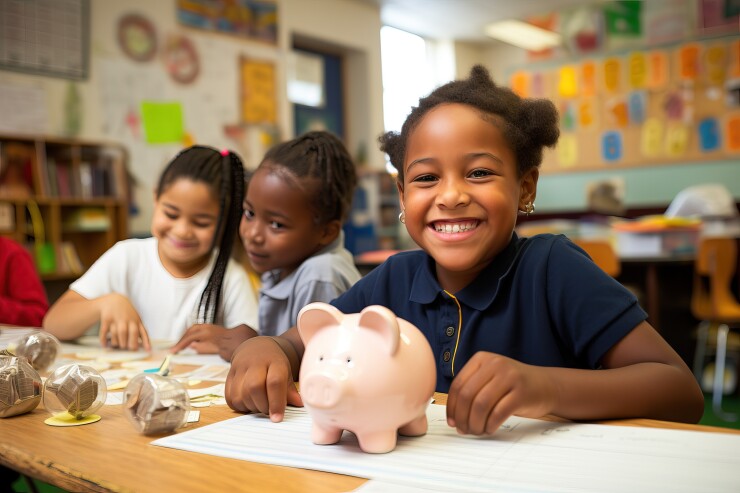Financial technology
The budgeting app, aimed at helping families teach children how to earn and manage money, completed its third raise of $9.6 million in Series A funding on March 25. The capital will go toward signing and integrating Goalsetter's technology into the platforms of financial partners as well as implementing its education programs and budgeting tech at schools.
"The future of finance is families. It's not just that individual patriarch anymore," said Goalsetter's founder and CEO, Tanya Van Court. "We are really focused on: how do we enable all of our partners to reach their next generation of customers? And how do we enable our partners to reach that next generation of customers so that they become lifelong customers?"
READ MORE:
Goalsetter has raised a total of $30 million since launching in 2016, attracting
Goalsetter banking on families, grade schools as apps flood the market
Personal finance apps have rapidly expanded in recent years and are projected to grow by 24% from 2024 to 2030, totalling $451 billion, according to Verified Market Reports.
Despite the increase in competition, consumer demand is there, as well as the funding. Just in the past week, budgeting app Copilot raised $6 million in Series A funding and investment platform NewRetirement raised $20 million.
All of the financial apps have different target audiences and services. Van Court said Goalsetter is using the new funding to keep growing partners within its current banking and wealth management space because there is still a strong need for financial education for children and families.
Van Court said they noticed a greater shift into financial literacy during the COVID-19 pandemic when uncertainty triggered more family discussions around money. At the same time, teens and young adults were gaining faster access to information about money on social media.
"There was heightened financial insecurity because there was so much uncertainty, and people were not prepared for an uncertain world like that," she said. "And kids [now have] a heightened awareness around finances that a generation ago, they would never have been worried about."
Goalsetter has also developed a classroom curriculum in addition to an app built for financial literacy training in middle and high schools. The fintech firm has so far partnered with schools in 10 states including Georgia, Louisiana, Michigan, Ohio, Pennsylvania and Virginia. They will soon expand into California, Van Court said.
READ MORE:
The demand for financial literacy in schools has also increased the past two years. There are 35 states that now require students to take a personal finance course in order to graduate high school, up by 12 states in 2022, according to a survey released by the Council for Economic Education (CEE) in February.
"Kids are online all the time so they hear about things like Gamestop, they hear about crypto, and they want to get involved. And they don't really have the tools to understand what the risks are," said Nan Morrison, president and CEO of the council.
Regardless of whether those tools come from apps, Morrison said financial education needs to start in the schools.
"I'm a big proponent of putting it in the schools because that way, we know that every child has equitable access," she said. "Whether a teacher decides to use one of the many apps, or not, is up to them. They need to be thoughtful about whether those apps make sense for the population that they're teaching."






